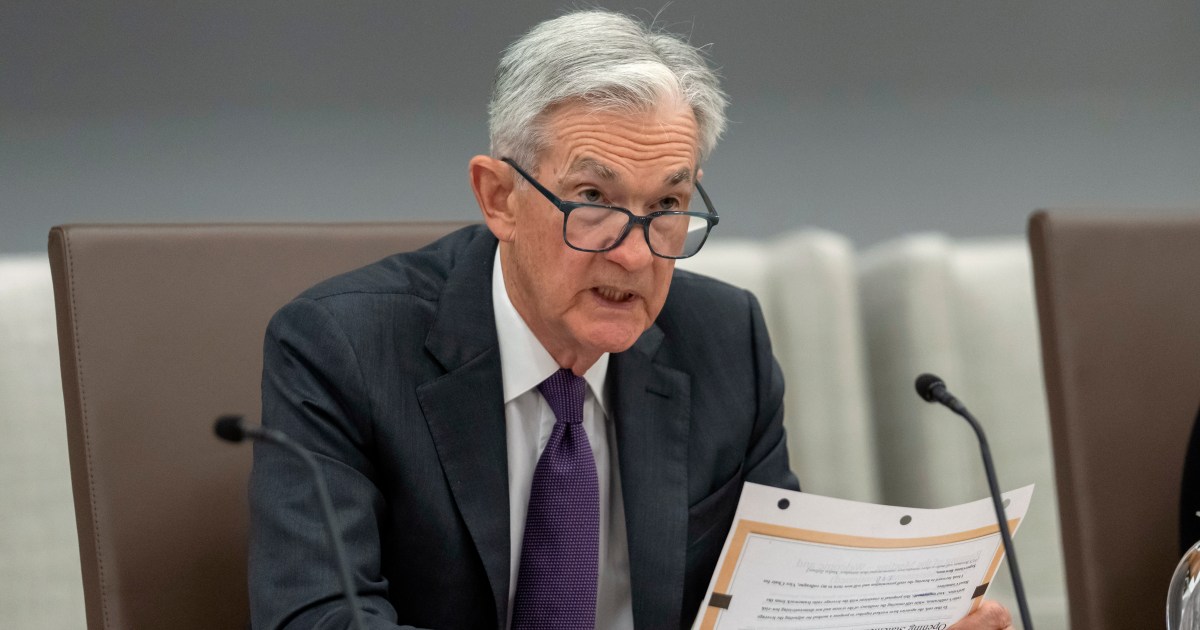The trial of music mogul Sean “Diddy” Combs has culminated in a verdict, after more than seven weeks of intense media scrutiny and testimony about drug-fuelled celebrity sex parties.
But beneath the salacious details, advocates say there are critical takeaways about how sexual violence is understood – and sometimes tolerated – within the criminal justice system.
On Wednesday, a federal jury in the United States delivered a split decision.
It found Combs guilty of transporting individuals to engage in prostitution, but not guilty of the weightier question of whether he engaged in sex trafficking or racketeering for flying girlfriends and sex workers to the parties he organised.
Prosecutors had described Combs’s activity as a “criminal enterprise” in which he leveraged money, power and physical violence to force former girlfriends into abusive circumstances.
The split ruling has, in turn, divided opinion about what the case means for the beleaguered #MeToo movement, which emerged in the early 2010s to bring accountability to cases of sexual violence.
For Emma Katz, a domestic abuse expert, the jury’s decision indicates there are still yawning gaps in public understanding about sexual violence. That understanding, she maintains, is necessary to assess the behaviours that accompany long-term abuse and coercion, particularly between intimate partners.
“I think a ruling like this would be a good news kind of day for perpetrators,” she told Al Jazeera. “The jury seems to have concluded you can be a victim, a survivor, whose boss beats you in hotel corridors and has control over your life, but that you’re not being coerced by him. ”
“So much of what perpetrators do that enables them to get away with their abuse – and what makes their abuse so horrific and so sustained – has not been acknowledged and has disappeared from the picture in this verdict,” she added.
A ‘botched’ decision
How the jury arrived at its decision remains unknown.
But prosecutors had been tasked with proving beyond a reasonable doubt that Combs used “force, fraud, or coercion” to compel his girlfriends into commercial sex acts.
The case was centred largely on the testimony of two women: singer Casandra “Cassie” Ventura Fine and a woman identified only by the pseudonym “Jane”. Both were identified as former girlfriends of Combs.
The prosecution argued that Combs had used his financial influence, violence and threats of blackmail to coerce Ventura and the other woman to perform sex acts during parties known as “freak-offs”.
The evidence included surveillance video from March 2016 of Combs beating Ventura in a hotel hallway and then dragging her away. Ventura herself gave harrowing testimony at the trial, saying she felt “trapped” in a cycle of abuse.
She explained that cycle involved regular threats and violence, including Combs “stomping” her on the face in a 2009 incident.
But the defence’s arguments throughout the proceedings appear to have swayed the jury, according to Neama Rahmani, a former federal prosecutor.
The defence blatantly admitted that Combs was abusive towards Ventura, as the surveillance footage had shown. But Combs’s lawyers maintained there was no evidence he coerced Ventura into committing sexual acts against her will.
The Los Angeles Times even quoted defence lawyer Teny Geragos as saying, “Domestic violence is not sex trafficking. ”
“The big question in the case is: If you’re sexually abused or assaulted, why did you stay with your abuser for more than a decade? ” Rahmani said. “I understand the psychology of abuse, but jurors don’t necessarily buy it”.
Rahmani broadly assessed that prosecutors “botched” the sex-trafficking portion of the case.
That included how prosecutors approached a series of messages from Ventura that indicated affection for Combs and active participation in sexual situations, which Rahmani noted were not revealed until cross-examination by the defence.
According to experts like Katz, such behaviour can be common in abusive relationships, in which an abuser expects a “performance of happiness” to avoid physical, financial or psychological repercussions.
“It would never surprise me to see a victim survivor sending loving texts and enthusiastic texts to somebody who they said was abusing them, because that’s all part and parcel of domestic abuse,” Katz said.
‘Stain on criminal justice’
From Katz’s perspective, the verdict underscores the reality of what has happened since the #MeToo movement emerged.
While #MeToo helped workplace harassment become more widely understood, the general public still struggles with the complexities of intimate partner violence.
“I think that the public has shown more willingness to consider how somebody might be harmed by an acquaintance, a work colleague, somebody who’s hiring them for a job,” Katz said.
By contrast, intimate partner abuse consistently raises victim-blaming questions like: Why did someone remain with an abusive partner?
“There’s still a lot of stigma around when you chose this person,” Katz explained. The thought process, she added, is often: “It can’t have been that bad if you stayed in the relationship. ”
But domestic violence experts point to complicating, often unseen factors. Abuse can have psychological consequences, and abusers often attempt to wield power over their victims.
Children, housing and financial circumstances can also prevent survivors from leaving and seeking help. People experiencing such abuse might also fear an escalation of the violence – or retaliation against loved ones – should they leave.
Experts, however, say it can be hard to illustrate those fears in court. Still, on Wednesday, Ventura’s lawyer, Douglas Wigdor, struck a positive tone about the outcome of the Combs trial.
In a statement, he said Ventura’s legal team was “pleased” with the verdict and that her testimony helped to assure that Combs has “finally been held responsible for two federal crimes”.
“He still faces substantial jail time,” Wigdor noted. The prostitution transportation charges each carry a maximum of 10 years.
Several advocacy groups also praised Ventura and others for coming forward with their experiences.
The verdict “shows that even when power tries to silence truth, survivors push it into the light,” Lift Our Voices, a workplace advocacy group, wrote on the social media platform X. “The #MeToo movement hasn’t waned, it’s grown stronger. ”
Fatima Goss Graves, head of the National Women’s Law Center (NWLC), echoed that Ventura’s and Jane’s testimonies were accomplishments in and of themselves.
“Coming forward and seeking accountability took extraordinary bravery and no jury can take that away,” she said.
Others were less optimistic about the jury’s split verdict. Arisha Hatch, interim executive director of UltraViolet, a gender-justice advocacy organisation, called the verdict a “decisive moment for our justice system” – and not in a good way.





